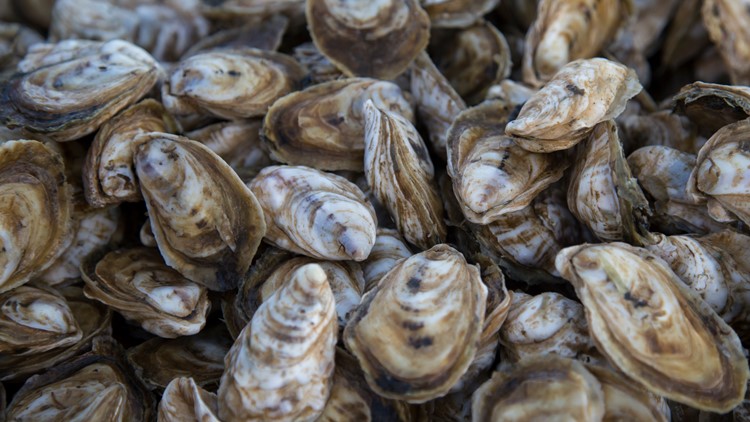NORFOLK, Va. — A man from Tangier Island will spend a year in prison for harvesting and selling oysters illegally.
Gregory Wheatley Parks Jr., 44, was sentenced to prison after he violated the Lacey Act by harvesting oysters from the Chesapeake Bay and transporting them to Maryland to sell.
Court documents said Parks was the captain of the fishing vessel Melissa Hope. He was aware of the limits set on oyster harvesting, as well as his obligation to accurately report the number of oysters harvested to Virginia Marine Resources Commission (VMRC).
“The oyster is a species integral to both the ecosystem and the economy of Virginia and the greater Chesapeake Bay region,” said G. Zachary Terwilliger, U.S. Attorney for the Eastern District of Virginia. “In choosing to disregard regulations established with a conscious eye towards preserving a population that has seen a significant decline, Parks’ conduct threatened to impact not just the efforts to protect that resource, but also people whose livelihoods are connected to the oyster fishery.”
On seven separate dates between January 2015 and March 2015, Parks harvested oysters over the Virginia daily catch limit. He then took the oysters in Maryland, where he sold them.
The oyster is a keystone species in the Chesapeake Bay due to its ability to build reefs that serve as a habitat for numerous fish species. They also improve the Bay’s water quality through filtration.
Virginia limits the daily harvest of oysters to eight bushels per registered commercial fisherman to conserve the state’s oyster resources. It also requires commercial fishermen to submit daily harvest records to the VMRC that report the number of oysters harvested.
For each of these trips, Parks falsely reported to the VMRC that he had harvested a legal quantity of oysters.
Parks pleaded guilty to one count of Trafficking under the Lacey Act, a federal law that prohibits individuals from transporting, selling or buying fish and wildlife harvested illegally.
“The U.S. Fish and Wildlife Service Office of Law Enforcement proudly protects our nation's wildlife and wild places for the continuing benefit of the American people,” said Edward Grace, Assistant Director of the U.S. Fish and Wildlife Service, Office of Law Enforcement. “Overharvest of aquatic ecosystems is a serious crime that hurts native species, local communities, and the economy. By complying with laws that protect wildlife, the American public can help conserve our nation's natural resources for generations to come.”



